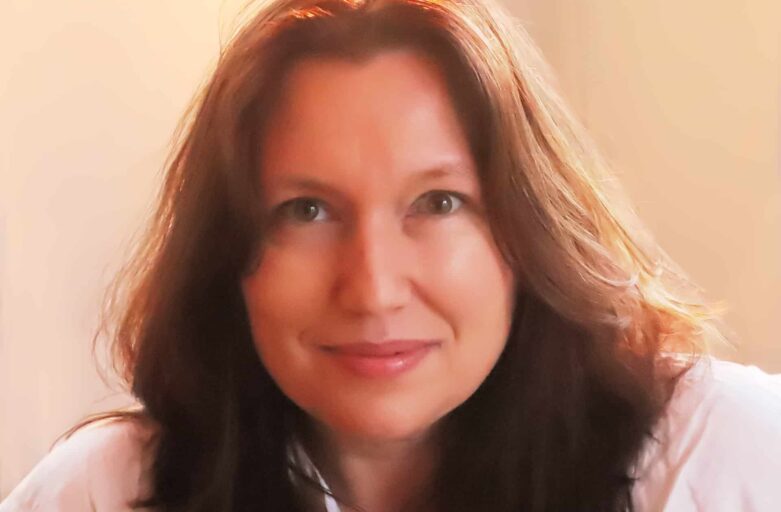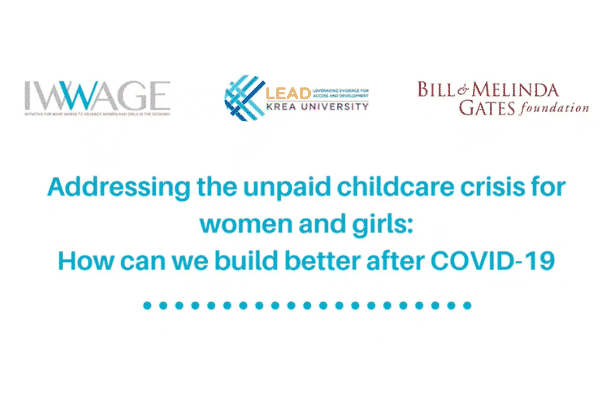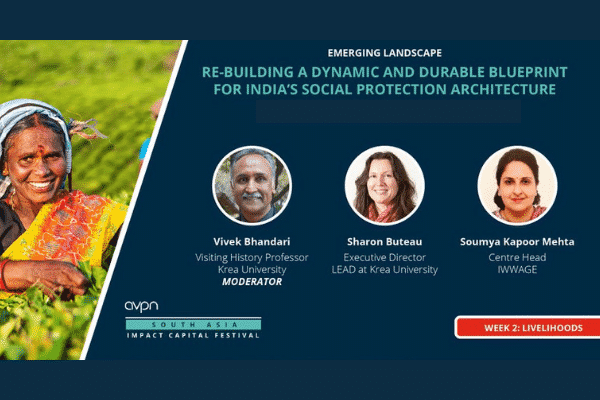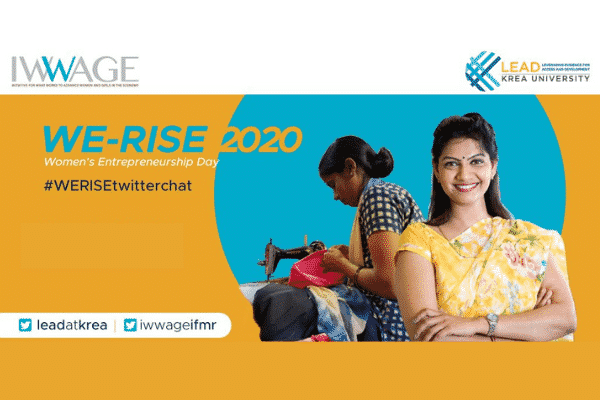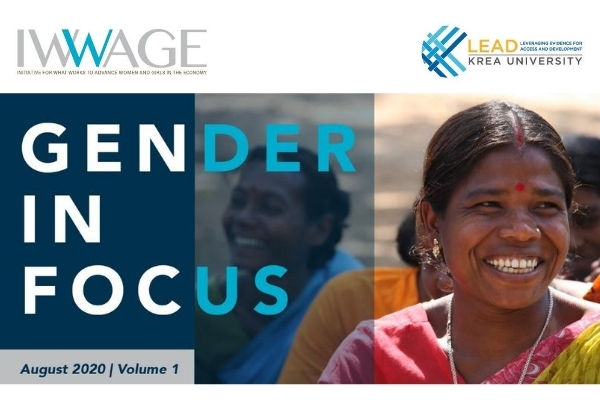In an exclusive conversation, Sharon Buteau, shares with us her story, a powerful tale of experiences as she continues a decade-and-a-half long journey through India as research leader and the Executive Director, LEAD at Krea University.
From combining passions, skills and experience into choosing research to drive impact, transitioning from a researcher to heading a research entity, and the insights from collaborating with the right people to solve the most complex of socio-economic problems, Sharon sheds light on some key takeaways from her rich experience. In a note to budding researchers on what would be the apt way to kick off their research journey, Sharon adds, “From the bottom-up. It would be important to understand all steps of a field research, from observation in the field, inquiry with relevant people, and framing research questions.”
What was ground zero, where and when did your curiosity for all things research begin?
My first passion is actually wanting to help people. As well, I was always very curious about other cultures and the big questions on humanity. My choice of a specific career path was more iterative, economics resonated with me as a good part of it focuses on understanding people and their motivations. I also really like working with data. I initially worked in a consulting firm in analytics, which gave me some satisfaction as I was working with data, however, a sense of purpose was missing. The transition to action research came as a result of gravitating towards work that combines my passions, skills and experience. The turning point was returning to university to study Social Research Methodology at LSE, was really wonderful and fascinating and a great segway into what I have been doing for the past 14 years.
In 2008, you arrived in India after a stint with Analysis Group in Montreal, Canada and there has been no looking back. Did you choose India or did India choose you?
A bit of both, India is very captivating, either you really dislike, or you really like. I initially intended to work for 6 months, working on a small project with a professor at IIMB. Towards the end of my stay, I was sent some job applications from IFMR and it seemed very interesting. When I was hired at IFMR, I intended to stay a few years and was particularly keen on understanding field work to collect data. Was also very motivated by doing research work that is practical and can be impactful in helping people. When I was looking for other challenges after a few years working at IFMR, potentially in Africa, the IFMR President at the time offered me an interesting opportunity to work on combining a few research centers to form one research entity, which is known today as LEAD. That transition from researcher to heading a research entity was a turning point, and one that in retrospect would qualify as “India chose me to stay and take roots”.
When you look back at the 15 years you have spent here, doing research and building and nurturing LEAD, what are some of the most dazzling memories?
There are many memories, every day in India is dazzling! My fondest memories are most often in the little things that grow to be impactful. Such as being in the field, hearing stories of people and their lives, and interacting with my team and seeing them evolve in their career. Furthermore, on an almost daily basis, meeting with people from various sectors and domains is really interesting as well. In particular the energy people put into wanting to make a difference is astounding. The ability to connect with so many people and create something that can have some impact on people’s lives is a strong force that pulls you towards even doing more work, despite an already often saturated bandwidth.
What are some of the key takeaways you have had in your journey as a researcher?
My journey so far in doing action research has been the realization that focusing on a few key strong problems to solve, gathering the right set of people and being really in touch with those who will be impacted by a solution we are designing are critical.
How powerful is research as a tool for development and also in the process of learning, should students be exposed to the idea of in-depth research from very young days?
These are two distinct sets of questions. For the first, I think actionable research is critical for understanding “what works” to solve complex problems. The research approach needs to be dynamic and collaborative and iterate towards solving problems, then only research can be a powerful tool for development. There is however a strong case as well to ensure that knowledge, even theoretical and more abstract, be consistently documented and read, this often inspires research design and at the very least gives scope for deep thinking.
With regards for the youth to be exposed to in-depth research at a young age. I think it is important for young people to be exposed to many things, but as well ensure that they also are self-aware about their skills and it aligns with their aspirations.
As a researcher, how do you approach solving a problem?
Observing, listening, deep focus and distilling problems to the most simplest form so they are solvable. Other than that, it requires the right set of people.
As a research leader and the Executive Director, LEAD at Krea University, you and your team’s work has been an example of using the ‘power of data’ from the ground up to improve socio-economic outcomes for diverse groups. Amongst the hundreds of surveys and field experiences, are there standout experiences which gave you reflections of a lifetime? Something that helped you surge ahead with more power than before?
While I think data is critical, the power of data comes when it is actionable and reaches the people who can use it to make guided decisions. I have three overall insights to prove to be helpful. My first strong insight is more data is not always better. My second insight is that data can be found in many forms, and there is a lot of value and scope to explore this and integrate it in our work. My third insight is that granular data is really critical. In a country as heterogeneous as India, the story lies in the standard deviations and extremes. As well, an eye opener was the importance of gender disaggregated data, there are really stark differences and nuances that are often not appropriately captured.
You and your work are direct advocates of women entrepreneurship, in the same way is there a need for more women researchers in the field of economics?
When looking at India specifically, women’s participation in enterprise development and in the labor force is low, even compared to other developing economies. Women entrepreneurs and women researchers are different segments but both have the same requirement to ensure that women at least have the choice and access to equal opportunity to choose to enter or not. In the field of economics, there are many women studying, where they are really underrepresented, in addition to the labor force, at the higher levels in organizations and on executive boards where key decisions are being made.
You have worked in diverse fields of research, from financial to gender inclusion, how important do you think is for research to be inter-disciplinary and break silos?
More than inter-disciplinary, research that aims to solve problems needs to be transdisciplinary. While inter-disciplinary refers to several academic disciplines looking at a problem from their siloed discipline, transdisciplinary involves focusing on perspectives of different actors that come together to work on finding a solution, by jointly working together to leverage their specific expertise and knowledge and experiences. To address complex issues, solutions generated by the co-creation process involved in transdisciplinary research allows to combine deep theory and thinking with practical knowledge.
You recently worked on a coffee table book that chronicles the story of LEAD; what has it been like to look back and also in a sense look forward?
By nature, I am very forward thinking. Am always thinking of the “what next?” Hence, it was a different experience to go back in time. But the whole exercise was very interesting, in particular to take stock of where we started and how we evolved. It actually gave a great boost of energy and enthusiasm to forge ahead, as there is now a well documented book that showcases our work and is relatable to a wide range of stakeholders.
For budding researchers looking at heading into grassroot research in the field of economics, how would you suggest they start their journey?
From the bottom-up… It would be important to understand all steps of a field research, from observation in the field, inquiry with relevant people, and framing research questions.
